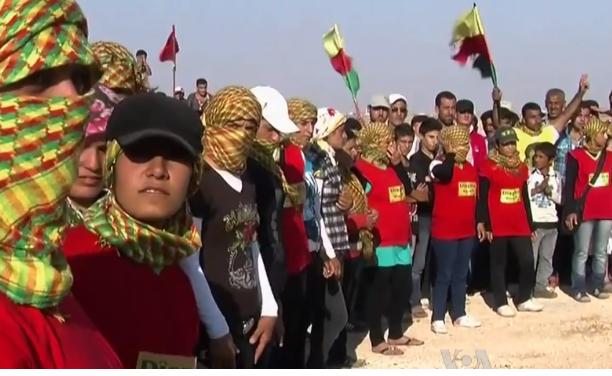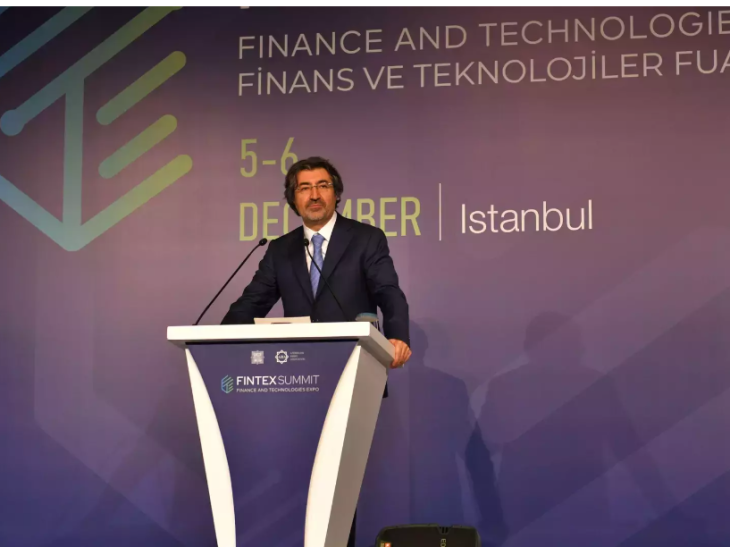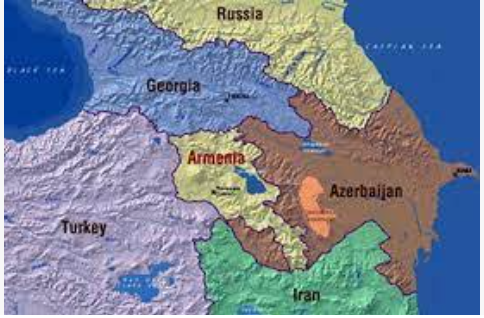US election unlikely to shift Turkey’s ambitions, leaving Kurds caught in the middle
 kurtler suriye
kurtler suriye
PA Turkey is hectically searching for material to explain to its readers the impact of US presidential elections on Turkey. One thorny issue between Turkey and the US is the status of Syrian Kurds, which the former considers an extension of the PKK terror organization, while the US a valiant ally against resurgent ISIS. Can the new president overcome the differences? Mr Yusuf Can, the Coordinator for the Middle East Program (MEP) at the Wilson Center, warns that, regardless of the outcome, Turkey’s regional ambitions may continue to overshadow Kurdish interests leaving Kurdish forces in a precarious position.
This is an excerpt from the exclusive interview with Medya News’ Matt Broomfield with Yusuf Can, who reflects on the potential outcomes of the upcoming US election on Kurdistan, the Kurdish political movement and the wider region.
As the USA goes to the polls on 5 November’s presidential elections, pundits and voters are paying close attention to the Middle East. Israel’s war on Gaza has inspired a broader regional confrontation which is drawing both Kurdistan and Turkey into its intensifying conflict, leaving locals facing further military escalation and Kurdish regions facing an uncertain future.
Matt Broomfield: Figures around Donald Trump have called for the US to wind down its own presence in the Middle East, while relying on Saudi Arabia and Turkey to protect its interests in the region. What would the likely consequences for such an approach be domestically in Turkey, in Iraqi Kurdistan, and in Kurdish-led North and East Syria?
[embed]https://www.youtube.com/watch?v=q2XQrc49fFU&t=79s[/embed]
Yusuf Can: The ongoing US support for the Syrian Democratic Forces (SDF) is poised to remain a central issue in Turkey-US relations, regardless of the outcome of the next US election. Even if there’s a shift in Turkey’s government before or in 2028, this dynamic is unlikely to change. Unlike many other geopolitical matters, the situation in North and East Syria, as well as in Iraqi Kurdistan, more or less transcends partisan lines in Turkish mainstream politics, particularly from a security perspective. That said, Syria, in its entirety, presents a more complex challenge, especially given the ongoing public discourse in Turkey about the status of Syrian refugees.
Turkey undoubtedly seeks greater influence in these regions, but this aspiration is coupled with a desire for US support, particularly in efforts to limit Russian influence while safeguarding US interests. However, this ambition introduces a dilemma: increased Turkish influence could escalate pressure on both Iraqi Kurdistan and the Kurdish-led areas of North and East Syria. How the US would respond to such developments remains an open question regardless of the elections.
[embed]https://www.youtube.com/watch?v=dW-ICd0t2aA&t=1640s[/embed]
This situation would necessitate a reassessment of the US’s relationship with the YPG [Peoples’ Protection Units, the main Kurdish force within the SDF], as Turkey’s cooperation in Syria and Iraq hinges on addressing this key issue. Turkey is actively pursuing the Development Road project, which aims to counter Iranian influence, and this objective resonates with both the Turkish government and the public, and should also resonate with the US, given its interest in curbing Iranian influence in Iraq and beyond. Yet, the approach to achieving this influence is crucial. Under President Erdoğan, Turkey is unlikely to abandon its strategic balancing between major powers, challenging the argument made by proponents of [pro-Trump manifesto] Project 2025 that Turkey should be reintegrated into NATO’s fold.
Would such an approach prove effective in curbing Russian influence and maintaining regional or US security?
If the US were to withdraw from Syria, the ability to curb Russian influence would largely hinge on Turkey’s involvement and its capacity to fill the void left by the US. It’s uncertain whether the US would completely abandon its support for the YPG, making it crucial for US diplomacy to balance its relationship with these Kurdish groups while simultaneously encouraging a greater Turkish role in countering Russian influence.
An empowered Turkey could indeed exert significant pressure on both Russia and Iran. Turkey has the potential to disrupt an Iranian land corridor to Syria through Iraq, but the US faces a delicate situation, as its regional allies (Turkey, Kurds and even Saudi Arabia) often have conflicting interests. Ultimately, this balancing act is at the heart of the challenge.
Hypothetically, is there a way for US policy to balance these regional objectives, and work proactively to bring Turkey and the (Syrian) Kurds closer together?
Balancing US support for the Syrian Kurds with maintaining Turkey’s loyalty is a complex challenge that demands a fundamental shift in both Turkish and Kurdish perspectives. The longstanding tensions between Turkey and the Kurds extend far beyond the US’s involvement in the region, and there’s only so much the US can do to navigate this delicate situation.
Even if there were a change in the Turkish government, it’s unlikely that relations between Turkey and the Syrian Kurds would improve to the point where they could collaborate against Russian and Iranian influence in the near term. The deep-rooted nature of Turkish-Kurdish tensions suggests that any significant cooperation in this area remains a distant prospect.
Follow our English language YouTube videos @ REAL TURKEY: https://www.youtube.com/channel/UCKpFJB4GFiNkhmpVZQ_d9Rg
And content at Twitter: @AtillaEng
Facebook: Real Turkey Channel: https://www.facebook.com/realturkeychannel/





